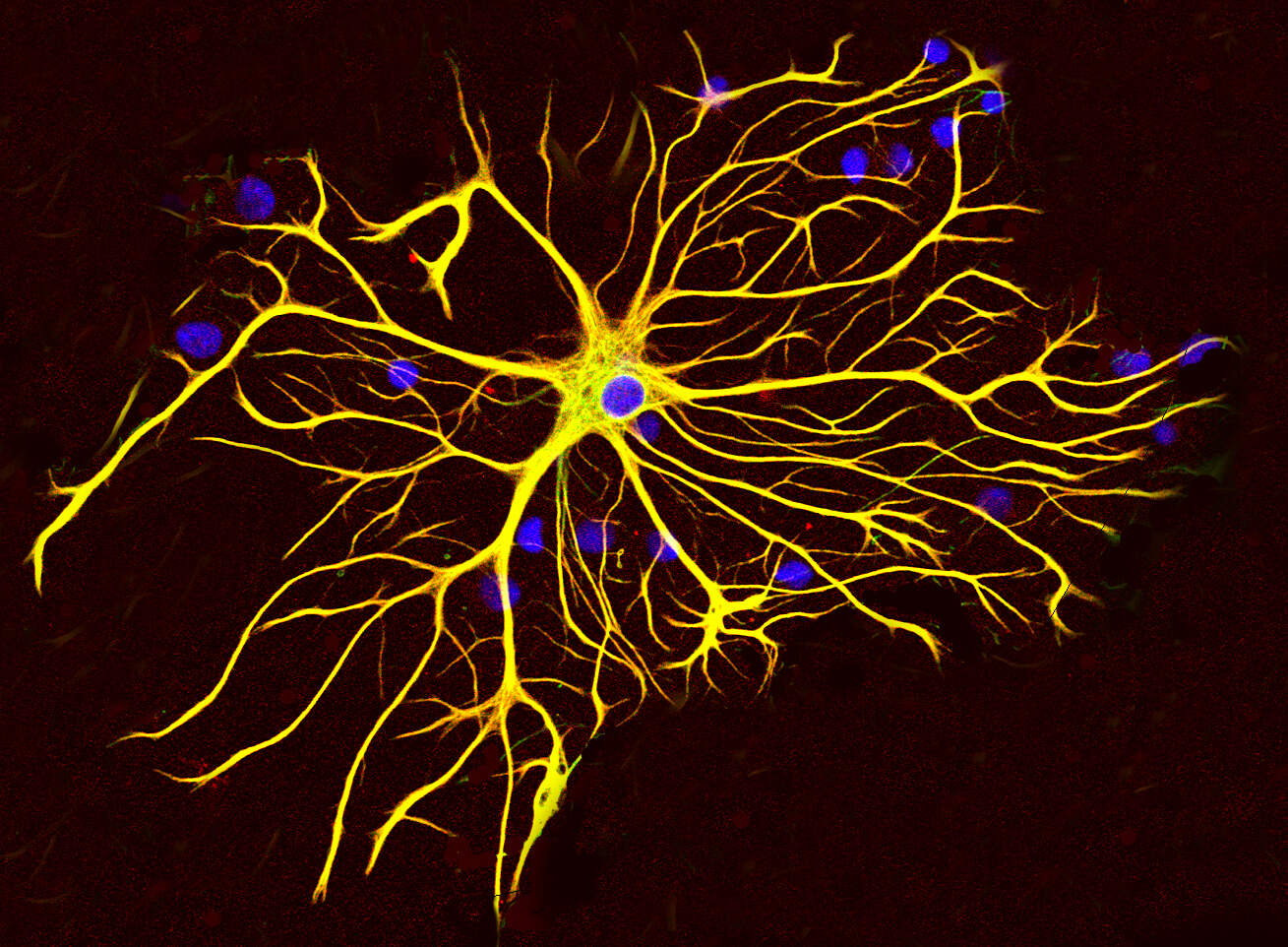
Astrocytes are star-shaped cells in the brain and spinal cord that play a crucial role in the central nervous system. Did you know these cells help maintain the blood-brain barrier, provide nutrients to nervous tissue, and aid in repairing the brain after injury? Astrocytes also regulate neurotransmitter levels, ensuring smooth communication between neurons. They are involved in the brain's response to injury and disease, making them essential for brain health. Understanding astrocytes can give us insights into neurological disorders like Alzheimer's and epilepsy. Curious about these star-shaped wonders? Let's dive into 28 fascinating facts about astrocytes that will expand your knowledge of these incredible cells.
What Are Astrocytes?
Astrocytes are star-shaped glial cells in the brain and spinal cord. They play a crucial role in the central nervous system (CNS). Let's dive into some fascinating facts about these essential cells.
-
Astrocytes get their name from the Greek word "astron," meaning star, due to their star-like shape.
-
They are the most abundant type of glial cell in the CNS, outnumbering neurons by about five to one.
-
Astrocytes help maintain the blood-brain barrier, which protects the brain from harmful substances in the bloodstream.
-
They provide structural support to neurons, ensuring the brain's architecture remains intact.
Functions of Astrocytes
Astrocytes are not just passive support cells; they have numerous active roles in the brain's functioning.
-
They regulate the transmission of electrical impulses within the brain by controlling the levels of neurotransmitters.
-
Astrocytes can release gliotransmitters, which influence synaptic activity and plasticity.
-
They play a key role in repairing and scarring brain tissue following traumatic injuries.
-
Astrocytes help maintain the extracellular ion balance, which is crucial for proper neuronal function.
Astrocytes and Metabolism
Astrocytes are heavily involved in the brain's metabolic processes, ensuring neurons get the energy they need.
-
They store glycogen, which can be broken down into glucose to provide energy during periods of high neuronal activity.
-
Astrocytes convert glucose into lactate, which neurons can use as an energy source.
-
They help remove excess neurotransmitters like glutamate from the synaptic cleft, preventing excitotoxicity.
-
Astrocytes play a role in the synthesis of cholesterol, which is essential for neuron membrane formation.
Astrocytes in Disease
Astrocytes are implicated in various neurological diseases and conditions.
-
In Alzheimer's disease, astrocytes can become reactive, contributing to inflammation and neuronal damage.
-
Astrocytes are involved in the progression of amyotrophic lateral sclerosis (ALS) by releasing toxic factors that harm motor neurons.
-
In multiple sclerosis (MS), astrocytes contribute to the formation of scar tissue, which can disrupt nerve signal transmission.
-
Astrocytes can become dysfunctional in epilepsy, leading to an imbalance in neurotransmitter levels and increased seizure activity.
Astrocytes and Neurodevelopment
Astrocytes play a significant role in brain development and the formation of neural circuits.
-
They guide the migration of neurons during brain development, ensuring proper placement and connectivity.
-
Astrocytes secrete growth factors that promote the survival and differentiation of neurons.
-
They help form and maintain synapses, the connections between neurons, which are essential for learning and memory.
-
Astrocytes influence the pruning of synapses during development, a process that refines neural circuits.
Astrocytes and Aging
Astrocytes undergo changes as the brain ages, affecting their function and the overall health of the CNS.
-
Aging astrocytes show a decline in their ability to regulate the blood-brain barrier, leading to increased permeability.
-
They become less efficient at clearing waste products from the brain, contributing to the accumulation of toxic substances.
-
Astrocytes in the aging brain can become reactive, leading to chronic inflammation and neuronal damage.
-
The metabolic support provided by astrocytes declines with age, affecting the energy supply to neurons.
Astrocytes in Research
Astrocytes are a hot topic in neuroscience research due to their diverse roles and potential therapeutic targets.
-
Researchers are exploring ways to modulate astrocyte activity to treat neurological diseases like Alzheimer's and Parkinson's.
-
Astrocytes are being studied for their potential to promote brain repair and regeneration following injury.
-
Advances in imaging techniques are allowing scientists to observe astrocyte activity in real-time, providing new insights into their functions.
-
Genetic tools are being developed to selectively manipulate astrocytes, helping researchers understand their specific contributions to brain health and disease.
The Marvels of Astrocytes
Astrocytes are more than just support cells in the brain. They play crucial roles in maintaining the blood-brain barrier, regulating blood flow, and ensuring neurons get the nutrients they need. These star-shaped cells also help in repairing brain injuries and are involved in the brain's response to diseases.
Understanding astrocytes opens up new avenues for treating neurological disorders like Alzheimer's, epilepsy, and multiple sclerosis. Their ability to influence synaptic activity and plasticity makes them key players in learning and memory.
Research on astrocytes is still evolving, but what we know so far highlights their importance in brain health. These cells are not just passive bystanders; they're active participants in the brain's complex network. So, the next time you think about brain cells, remember the unsung heroes—astrocytes. They truly are the stars of the brain.
Was this page helpful?
Our commitment to delivering trustworthy and engaging content is at the heart of what we do. Each fact on our site is contributed by real users like you, bringing a wealth of diverse insights and information. To ensure the highest standards of accuracy and reliability, our dedicated editors meticulously review each submission. This process guarantees that the facts we share are not only fascinating but also credible. Trust in our commitment to quality and authenticity as you explore and learn with us.
